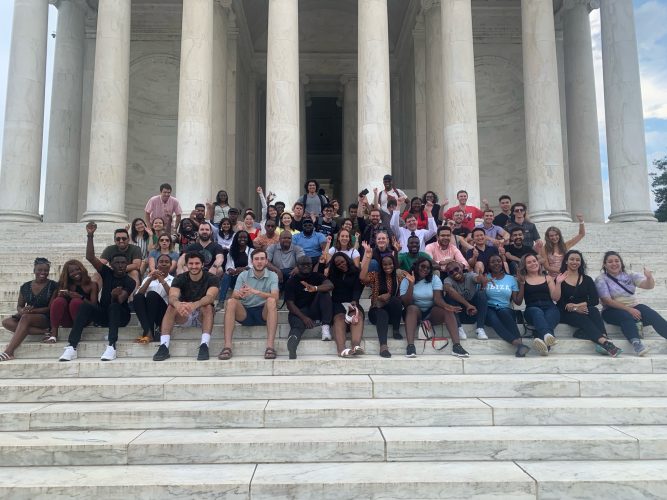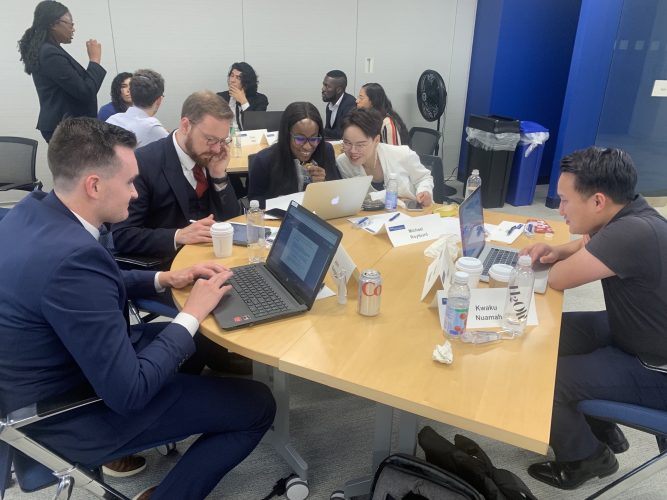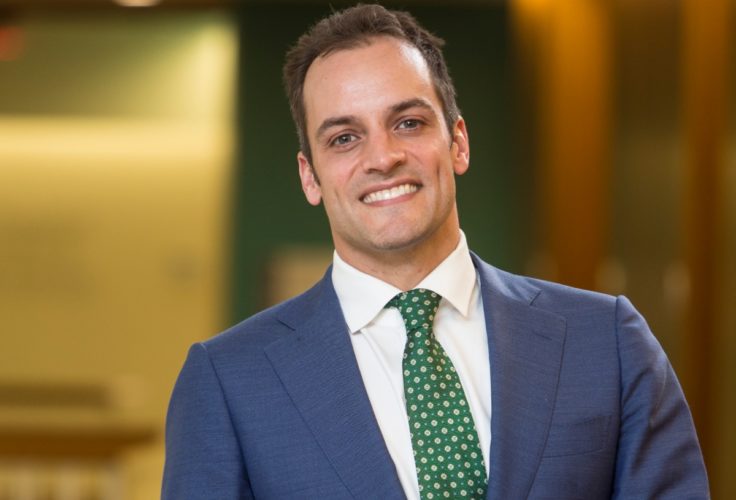One mark of any successful enterprise—particularly one that places excellence and collaboration among its core values—is the ability to learn from its innovations, to iterate based on those learnings and to execute a new vision.
It’s a principle we teach at WashU Olin Business School, and it’s a principle we used to fine-tune our bold and rigorous global immersion for first-year MBA students. The result: It’s still bold. It’s still rigorous. It will continue to galvanize each class with exceptional grounding in global business practices. It’s just optimized based on our experience.
Launched in 2019 with fanfare as part of our globally focused Full-Time MBA program—and including some acclaim from b-school observers—Olin has conducted its six-week, three-continent immersion for MBA students four times. Those experiences opened the minds of incoming students to the global reach of their business aspirations. They’ve forged lifelong bonds among members of each cohort.
All that continues in global immersion 2.0. But those experiences taught us a few things about how we can improve the global immersion for future MBA students.
Rigorous and manageable
For example, the MBA class of 2025 will begin on July 10 rather than mid-June, allowing incoming students more time to continue working and plan their transition to graduate school.
Instead of six consecutive weeks of travel at the start of their program, the next cohort will experience a global immersion broken into three separate, more manageable trips in the program’s first year—first to Washington, DC, and the Brookings Institution in August; then to a European destination in October; and, finally, to an Asian destination in March 2024.
This new timing will allow incoming students to acclimate to the rigors of the program and the city of St. Louis. It will also enable them to use some of the learning from their on-campus coursework in the global immersion projects.
And once Olin’s curriculum designers evaluate which cities will provide the most relevant opportunities for student growth and development—and consider issues around safe travel and student access—we’ll announce specific locations abroad in spring 2023.
In addition to those changes, we’re slightly reducing required core curriculum credits, giving students more room for electives that meet their unique needs and interests. Meanwhile, coursework during the three trips remains tailored to each experience, allowing students to confront real-world, global business challenges.
Same globally oriented course content
Courses during the global immersion trips will continue to look deeply at how international values, cultures and institutions influence business abroad. Students will study business models in a global context and how strategy is shaped when implementing business operations on a global scale.
We know our MBA students have come to value Olin’s truly global program. Among so many other benefits, it gives them an additional story to tell about their career preparation.
And now, with the benefit of a critical review of the program, we have refined the experience to reduce the stress on students and their families, keep them fresh for their studies abroad and in St. Louis and avoid potential conflicts with career conferences and student experiences.
In short, WashU Olin will still offer the bold, rigorous, global program we unveiled in 2019—and we remain one among very few schools focused on global business experience. We’re proud to offer students an experience spanning three continents—in one truly global MBA.
Pictured above: Students from the MBA class of 2024 visit the fields at Kingston Family Vineyards outside of Santiago, Chile, during their global immersion visit in August 2022.
















